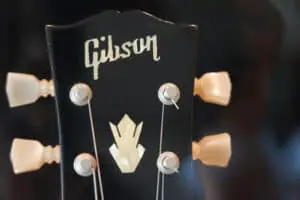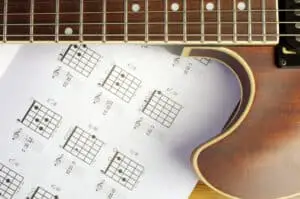
If you Google “how hard is it to play the guitar,” you’ll likely find a slew of conflicting results that leave you with more questions than answers. While there isn’t a one-size-fits-all answer to this question, there are factors to help you determine the answer by yourself.
If you are new to playing the guitar, then the complex note layout, the difficult techniques, and the amount of finger dexterity required will make it challenging. However, if you have a little experience with the instrument (say 2-3 weeks of daily practice), it will be easier since you’re already familiar with the instrument.
Let’s explore the factors that determine how hard it is to play the guitar and some challenges you’ll face when learning to play.
Factors That Matter

As stated earlier, learning difficulty varies from person to person. While some might be aspiring to be professionals, others may want to be able to play a couple of songs, and that’s it. Whatever it is for you, below are the factors that’ll determine how hard it’ll be to play the instrument:
Your Goal
The greater your goal is as a guitar player, the harder it’ll be to play the instrument. If you want to be a guitar legend, you’ll have to learn to play the most complex chords and clamp down on every deformity in your skills. Whereas, if you just want to be able to play your favorite songs and entertain friends, you’ll only need to learn some basic chords and practice for a few months.
Talent
Suppose you’ve got a natural aptitude for music, then good for you. You will face little difficulty (such as dealing with callus fingers) and pick up the instrument relatively fast. As for others, you’ll need to put in more time and determination to pull through.
The Effectiveness of Your Practice
Are you constantly playing the little you know without working on weak areas on that chord? How often do you practice weekly? Once? Twice? Without an effective practice schedule, you might be wasting your time. Your schedule should be designed to give you maximum improvement in the shortest possible time.
Training Resources
There are tons of resources online on playing the guitar due to its popularity. However, learning guitar may be more difficult than it should be if you use random tutorials from any platform.
Needless to say, using a well-vetted, comprehensive resource, and having a teacher who understands your goal as a guitarist, will motivate you to learn faster.
Challenges You’ll Face

If you’re just starting to play the guitar, you should expect to face the following challenges:
Understanding the Fretboard
A standard guitar has 22 or 24 frets (little metal strips on the fretboard) and 6 strings, which means there are 144 potential notes to play. These notes may feel like they are in completely random order when you’re initially learning the guitar, making learning the instrument difficult.
However, you will understand where all these notes are situated on the fretboard with time, trial and error, and a little bit of work.
Synchronizing Both Hands
If you want to learn to play the guitar, you have to get used to both your left and right hand engaging in totally different motions – which is pretty daunting. One of your hands has to get used to fretting notes, while the other has to get used to plucking those strings – both of which require their individual skill. You’ll have to use both hands simultaneously to play songs, and any beginner would find that difficult.
Playing Non-Adjacent Strings
When two strings are not right next to each other, beginners find it impossible to play them without touching the one in the middle. However, with practice, it becomes second nature.
Other challenges
Learning to play the guitar might be more difficult for you if you have small hands since the frets are spaced out. You’ll need to expend more effort to play chords.
Additionally, pressing down on the metal strings all day is painful. Many beginners quit specifically because of this.
Takeaway
If you are new to playing the guitar, the first few days will be challenging. You will have to deal with callus fingers, balancing the guitar appropriately, making sense of the rather haphazard-looking notes, and finger dexterity issues. However, these are small sacrifices for the joy of learning to play. With constant practice, you’ll get used to all these challenges. Remember to create a practice schedule and learn with the right resources.
Frequently Asked Questions
Honestly, this depends on your commitment and how well you practice. If your goal is to be a good hobby player (someone who’s interested in learning what they need to know to play their favorite songs and have fun), you’ll spend less time than someone who aims to be a professional guitarist.
Compared to other instruments such as violin and piano, knowing music theory isn’t a necessary skill to be a great guitarist. It sure does help to know it, but that’s if you want to.
As long as you are not practicing to become the next Jimi Hendrix, you don’t have to know everything to be good at the instrument. With just three chords, you can play a wide variety of songs, entertain friends, and even play at events.
Studies say playing the guitar improves the brain’s grey matter (an area of the brain involved in muscle control and sensory perception such as hearing, seeing, memory, emotions, and decision making). This is because you must recall chords and rhythms, which provides a strong mental workout.









